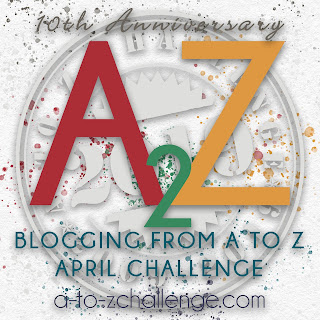
Genre is a word used to categorize the style of a piece of writing and often dictates where in a bookstore or library you will find a book.
Knowing your genre is important because certain publishers and/or agents specialise in different genres, and there is no point pitching your historical romance novel to a publisher or agent who specialises in science fiction and fantasy. It’s also important to readers because different genres have different conventions and you don’t want to disappoint or mislead them before they’ve had a chance to become fans.
The best way to become familiar with a genre is to read widely in it. You learn the tropes and style the genre requires, the language used and the expected length. Only by being very familiar with a genre can you expect to be able to break its rules successfully and keep fans reading.
A novel-length piece of fiction is unlikely to be just one genre. A thriller may have romance in it. A sci-fi novel may have elements of action and adventure. This is fine. You just need to identify what the primary genre for your book might be. Anything else that’s in there is fine, as long as you still follow the rules for that genre.
But what about breaking the rules? Yes, it’s possible, but you need to really know the rules before you break them. And it’s never a good idea to break all the conventions of a genre in one book, even if you think you’re on to something completely groundbreaking. Maybe you are, but readers of that genre may not be ready to have all the tropes they expect from a genre to be exploded at once.
For example, I recently started re-working a story I had previously called a historical romance. Having finished re-working it, I realised that while it does hit some romance novel tropes, it actually fulfils more of the genre conventions of a western. But it’s not set in the Wild West, or even in America!
So what I have is an Australian western. I’ve twisted the expectation that a western must be set in one of those lawless western American states, but followed many of the other conventions of the genre. And of course, thrown in a romantic subplot. But the romance is not the primary driver of the novel, so therefore, if I was looking for this particular book in a bookstore, I wouldn’t be heading for the romance section, but for the westerns.
Oh, and one more thing.... Contrary to popular belief, Young Adult is not a genre - it’s a category or age-range. Although confusingly, when using the “where in the library or bookshop would I find it” model, you generally will find all the YA books in one place, regardless of whether they are fantasy, horror, contemporary or romance.
Confusing, isn't it?



6 comments:
One of the great westerns of the new millennium is The Proposition, which was Australian.
Mashing genres can be so much fun! It's interesting how you started with a romance and ended up with a Western.
Ronel visiting from the A-Z Challenge with Music and Writing: Grr...
Yes, choosing a genre for a new novel is comparable to picking the right clothes for a wedding or picnic - it depends on so much, such as the setting, the main characters (spellcheck disallows an apostrophe) intentions/desires, and your frame of mind.
http://gail-baugniet.blogspot.com
You are so right that YA is an age-range and not a genre... and yet so many publishers seem to treat it like one, with a whole range of conventions that must be adhered to. It's annoying as a writer, and would have annoyed the heck out of me as a reader when I was that age (although it wasn't really categorized as such when I was that age.) I'm all for refusing to stick with the conventions that aren't working -- but you are also very right that you have to pick those "battles" carefully and thoughtfully. Break conventions only for a valid reason, and not all at once!
Black and White: G is for Gnome
I write small-town, whodunit style mysteries. Hard to find a sub-category for that. LOL!
DB McNicol, author
Microfiction: Golf
Like the "Australia" movie? Sounds awesome! It's funny how genre can be so vague.
Post a Comment